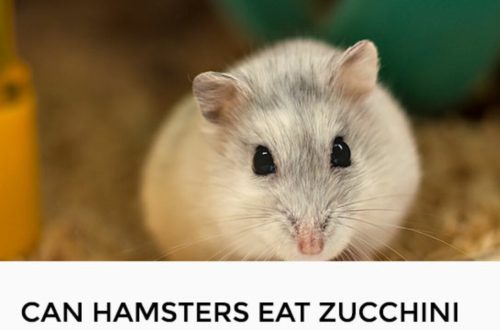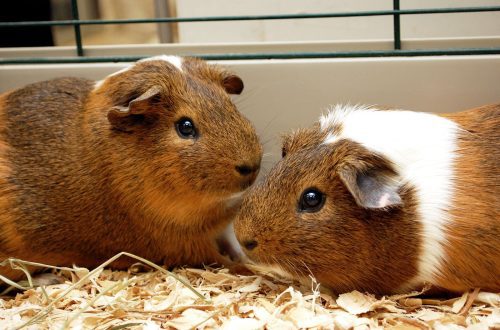
What can and cannot be given to rats: nutrition table

The nutrition of a rodent determines its health, and hence the quality of life. It is necessary to understand well what rats can and cannot include in the diet. Even a permitted product bought at the wrong time can cause an allergic reaction.
Contents
What dangers can ordinary products pose?
The age of rapidly developing technologies has also affected food. Plastic rice imported from China has already appeared on the shelves, and fruits and vegetables are stored for years due to special processing tools. Off-season watermelons contain a huge amount of nitrates, and chemists conjure over the composition of dairy products.
If the human body is still able to digest the “achievements” of modern technologies, then such products are harmful to rats.
Foods Not to Eat Rats
If your pet’s health is important to you, don’t feed him from the table. It seems that there is nothing wrong with giving a rodent a piece of apple, chicken or cracker, but this is not so. A rat may refuse to eat its food and instead receive a high proportion of fats and carbohydrates. It will be difficult to wean an animal accustomed to a common table, which means the end of a balanced diet.
It is strictly forbidden to give the rodent alcohol, fried, smoked, salty, pickled, fatty foods, carbonated drinks and sweets.
Grains and cereals
Cereals are the main product in the diet of rats, but they are not equal in their importance. Wheat is a rich, high-calorie product, it can be given to rats, but it must be borne in mind that it must be supplemented with other components. The mixture may include oats, buckwheat, corn, rye, barley or pearl barley, rice, millet or millet. These grains are not equal. Buckwheat is a dietary low-calorie product, and corn, on the contrary. Oats should be added in small quantities, excess can cause fermentation. Refined rice is low in nutrition, so look for a mix with wild rice or an unrefined version of the cereal.
Semolina does not contain anything useful, so this product should be excluded from the diet. Barley or wheat groats are suitable for cereals. Porridges are useful only for weakened, emaciated animals or young animals. Adult rats should only be given as a treat.

Vegetables and greens
From vegetables, products that cause fermentation are banned: white and red cabbage, Savoy and Brussels sprouts, as well as cauliflower. Rats can eat broccoli in small quantities. Strong gas formation is caused by radishes, turnips and radishes, as well as all types of legumes: beans, peas, beans and lentils. Caution should be given to sweet pepper, some animals give the same reaction to it. You can sometimes offer boiled green beans if it does not cause gas in the pet. Carrots, zucchini, zucchini and pumpkin are tasty and healthy foods. Cucumbers in excess will cause diarrhea. Eggplants are suitable only when boiled, solanine in raw vegetables can cause poisoning. Artichokes can also be given only cooked. Potatoes will not bring any benefit to the animal. In its raw form, it is contraindicated for animals, but in boiled it goes like ballast. However, some rodents will gladly eat potatoes.
Vegetables, fruits and greens should be given daily in a small amount – 10-12 g.
Dill, cilantro, parsley, basil and celery are healthy foods for animals and can be given every day. They are not only safe, but also help digest protein foods. Onions, garlic and wild garlic are not suitable because of phytoncides that irritate the gastrointestinal mucosa. They should be given occasionally and in limited quantities. Acidic vegetables such as tomatoes, rhubarb and sorrel can also eat away at the delicate walls of the rodent’s stomach. Do not give the animals and spinach. Beetroot carries another danger – a laxative effect, it should be given carefully. Leafy salads that do not have specific bitterness are generally suitable for animals.
mushrooms
Of the mushrooms, white, boletus, boletus and champignons are suitable. Mushrooms are not the main food, so they should be fed occasionally and only boiled. It is impossible to give an animal conditionally edible mushrooms, even if they are safe for humans.
Fruit

All citrus fruits should be immediately excluded from the diet of rats due to acid. Occasionally, you can give a piece of sweet tangerine. Forest and garden berries should be sorted according to their acid level. So cranberries, useful in many respects, should be given carefully because of their taste.
Cherries are better than cherries. Never give the animals the seeds of fruit trees or citrus. They can be poisonous to rodents. Pay attention to the special properties of fruits. Chokeberry and bird cherry strengthen, and plum weakens. This must be taken into account when choosing food. A pear can cause fermentation in some individuals. Watermelons and melons can be given in small quantities and only in season as they accumulate nitrates.
Dried fruits are too sweet and can cause fermentation. They should be given carefully, in the form of a treat.
Nuts and seeds
Invaluable vegetable protein and a lot of vitamins bring these products to the first place in their value. However, they are all too fat to feed ad libitum. Nuts can be given as a treat or as a small addition to the main feed. From the seeds, you can feed the rat with pumpkin and watermelon seeds, apple seeds and sunflower seeds. You should not give rats almonds and exotic nuts, such as Brazilian nuts.
Dairy produce

Decorative rat eats dairy products with pleasure, but some animals have lactose intolerance. Ordinary milk should not be given to a rodent at all, but fermented milk, in a small amount, will not hurt. However, you should not feed your domestic rat sour cream, cheese or cream due to the high fat content of these foods. Animals benefit from cottage cheese, fermented baked milk, yogurt without additives and sugar, yogurt, kefir, acidophilus. All these products should have a fat content of 2-4%. Fat-free foods are less natural. “Sour milk” should be chosen with a short shelf life, preferably for children or from farms.
Animal squirrels

Twice, or even three times a week, animals are supposed to receive animal proteins. The table can be served:
- boiled lean meat;
- hard-boiled chicken or quail eggs;
- flour worm, zoophobus (zofobas), gammarus;
- seafood;
- high quality dry food for cats or dogs.
From poultry, chicken breast can be given, but turkey is better, which is not fed with growth hormones. From ungulates, you can take beef, lean lamb, game. It is better to grind the boiled yolk with water so that the rat does not choke. You can not feed rats with fatty pork and derivatives from it.
Purchased beef should be soaked for 2-3 hours before cooking, and chicken should be boiled in several waters to remove harmful substances. Rats can suffer from allergies.
Special cases
Sometimes you can feed the animals with baby food in the form of puree from jars. Children’s or diabetic cookies without sugar or sweeteners can serve as a treat.
Dark chocolate will not harm if given infrequently. Rats should not be given tea and coffee, and herbal decoctions are safe only as directed by a doctor. Sweets, jams and chips are excluded.
The set of allowed products is shown in the table.
Table of allowed and prohibited products
| Product | One can | Can be done in small quantities | Must not |
| Grains and cereals | Wheat | Corn | Semolina |
| Barley (pearl groats) | Oats and oatmeal | ||
| Rye | Groats wheaten | ||
| Millet (millet) | Kashi | ||
| Flax-seed | |||
| rice | |||
| Vegetables and greens | Carrots | Broccoli | White cabbage, Savoy cabbage, red cabbage, Brussels sprouts, cauliflower |
| squash | Boiled string beans | Turnip | |
| Zukkini | artichoke boiled | raw artichoke | |
| Pumpkin | Cooked Potatoes | Raw potatoes | |
| Squash | boiled eggplant | raw eggplant | |
| Dill | Cucumber | Peas | |
| Parsley | Onion and green | beans | |
| Cilantro | Garlic | Lentil | |
| Basil | Spinach | beans | |
| Iceberg lettuce, lettuce, arugula | Tomato | Radish | |
| Chinese cabbage | Beetroot | Radish | |
| Celery | Rhubarb | ||
| Sorrel | |||
| Mushrooms boiled | White | ||
| Podisinovik | |||
| Underbird | |||
| Champignon | |||
| Fruits and berries | Apple | sweet tangerine | Citrus |
| Cherry | Pear | Persimmon unripe | |
| Strawberries | Plum | ||
| Raspberry | Banana | ||
| Currant | Kiwi | ||
| Mango | Cranberries | ||
| Apricot | Lingonberry | ||
| Peach | gooseberries | ||
| Avocado | Watermelon and melon in season | ||
| sweet cherry | Rowan Red | ||
| Grapes | Rowan black | ||
| Blueberries | Persimmon mature | ||
| Seeds and nuts | Watermelon seeds | Peanut | Almonds |
| apple seeds | Funduk | Fruit and citrus stones | |
| Cashew | |||
| Gretsky | |||
| Cedar | |||
| Coconut | |||
| Dairy produce | Kefir | Cream | |
| Ryazhenka | Cream | ||
| clabber | Cheese | ||
| Atsidofilin | Butter | ||
| Curd | Condensed milk and cream | ||
| Yogurt | |||
| Animal squirrels | Lean cooked meat | Pork | |
| Low fat offal | Fat | ||
| Boiled chicken and quail eggs | Smoked meat | ||
| High quality cat or dog food | Sausages | ||
| boiled fish | |||
| cooked seafood | |||
| Gammarus | |||
| Meal worm and zoophobus | |||
| Other | Meat and vegetable puree from baby food | Tea | |
| Bitter chocolate 70-80% | Coffee | ||
| Unsweetened cookies | Alcohol | ||
| Homemade bread croutons | Confection | ||
| Chips | |||
| Carbonated drinks |
What you can and cannot feed a domestic rat
3.6 (72.65%) 362 votes






